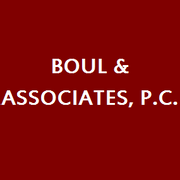Chapter 7 bankruptcy and chapter 13 bankruptcy are the two "consumer" type bankruptcies. Both end with a discharge of dischargeable debts, assuming the debtor is eligible for a discharge. Here are some of the more important differences between these two kinds of bankruptcy.
The Payment Plan. Chapter 13 involves a payment plan that runs for three to five years. The discharge of debts comes at the end of the payment plan. The monthly payment is the amount the debtor can afford to pay, based on a projected income and living expenses. Creditors get only what the debtor can afford to pay, and any balance remaining unpaid at the end of the plan is discharged (except for debts that are not dischargeable). Chapter 7 does not include a payment plan, and usually takes about three months from beginning to end. Chapter 7 is easier, quicker and, obviously, cheaper. So why would anyone choose chapter 13? Following are some reasons.
Eligibility. A debtor may not be eligible for chapter 7, due to a prior bankruptcy or having too much income. You can always force creditors into an affordable chapter 13 payment plan, at any time, regardless of prior bankruptcies.
Stop Foreclosures. A debtor whose home is being foreclosed upon, can use chapter 13 to stop the foreclosure and catch up the back payments over a period as long as five years.
Protect Property. If you have property you would lose in a chapter 7 bankruptcy, you can keep the property by paying creditors an equivalent amount in chapter 13.
Discharge More Kinds of Debts. For example, some debts that are not dischargeable in chapter 7 can be discharged in chapter 13; for example, debts assigned in a divorce.
Restructure a Vehicle Loan. In chapter 13, older vehicle loans can be restructured. The lender's lien can be reduced to the actual value of the vehicle. In chapter 7, the debtor can also pay off a vehicle loan by paying the actual value of the vehicle, but the payoff would ordinarily have to be done within a few months. The chapter 7 procedure is called redemption.
Protect Co-Debtors. A co-debtor can be protected from creditors by a chapter 13 payment plan, whereas, chapter 7 bankruptcies do not protect co-debtors.
These are some of the more important differences between chapter 7 and chapter 13. There are other differences, as well. A good bankruptcy lawyer can assist you in making the choice.
Hiring a bankruptcy attorney is an important decision and should not be based solely on advertising. You want to find attorneys you can rely on. When you need effective, professional representation for your bankruptcy case, don’t hesitate to contact the law office of Boul & Associates, P.C. Call (573) 443-7000 to speak with an office representative or visit the firm online to learn more.
By Harry D. Boul, Esq.
Copyright June 8, 2017
About the Business
(56 reviews)
Have a question? Ask the experts!
Send your question

